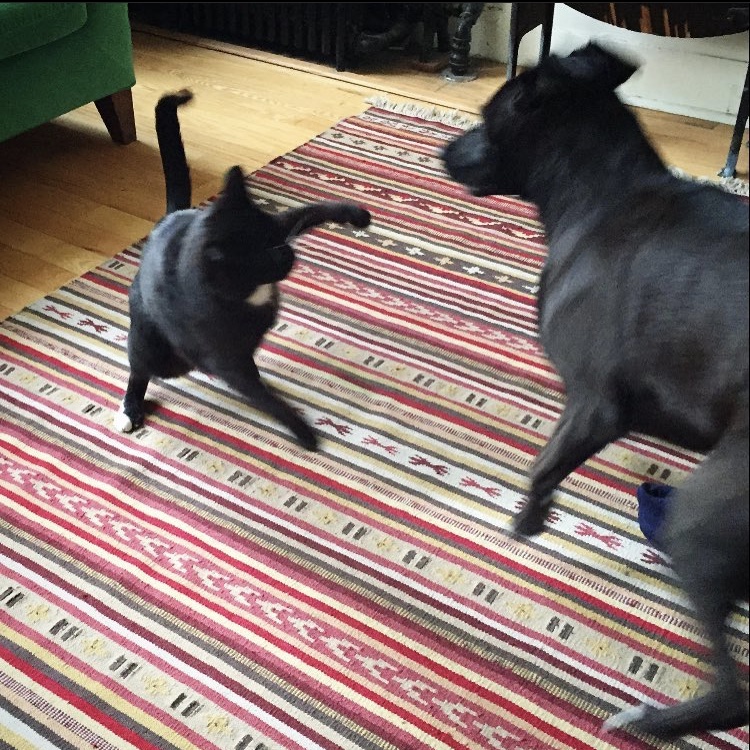Asking for Help
I was catching up with my dear old friend Ginger Dolden earlier this week. Ginger is a badass – owner and founder of Bantam Studios, violinist, bandmate, contractor, programmer, marketer, designer….her skill set list goes on, seemingly forever.
It’s easy to take one glance at a person like her and think “what could they possibly struggle with?”
Well.
Consider that we musicians (and creative types, entrepreneurs etc.) are all like Ginger in some form – a laundry list of skills and accomplishments sit below our surface. Musicians are renaissance people by default. As great of a power as this is, it presents a tricky underside.
We tend to be afraid to ask for help, and therefore don’t.

We all fall under the illusion that successful, talented people don’t need help. They just pull from their magic hat of skills and get the thing done! Therefore, what does it say about US that we might need help?
Enter the dark lies about people who need help: weak, unskilled, stupid, inept, a fraud, etc.
Back to Ginger – she and her husband, Pete (also a badass violinist, founder of his band Pete Lanctot and the Stray Dogs, not to be confused with Ginger’s cat Pete, who came before the husband) were laying down some string parts they were hired to record remotely. The arranger of these charts had chosen to write the parts in Gb major.
A little context: Gb can be the key of kryptonite for string players. It is a terribly frustrating key to read quickly and play in tune (both requirements for recording sessions), and the easy workaround is that we read and write charts in the much more accessible enharmonic equivalent, F#. Same notes, easier to read. Like turning the Old English font into Times New Roman.
With remote recording, there’s an easy solution to a weirdly written part: write out yourself in a way that makes sense. I’ve done this, everybody has done this, Pete offered to do this for Ginger. So obviously she took the help, right?
Another piece of context: Musicians can be terribly proud. All the private lessons/competitions/orchestra auditions embed a hardwired need to prove ourselves to, well, ourselves. Such was the case when brilliant, accomplished, talented Ginger locked into “automatic proud violinist” mode and banged her head against the wall trying to read this damn Gb chart.
Pete, gently: “Do you want me to just rewrite the part in F#?
Ginger: “NO.” (Can you feel the iron in her will?)
Bless her, the woman had no reason NOT to take the easy route. But she chose the hero’s journey. That is, until after an hour and a half she finally conceded, let Pete help her, and write the part in F#.
Why do we do this? Or rather, why don’t we ask for help?
I see two forms of self-sabotage arise all the time around resisting help. One is the above example: trying to haul a load uphill when there’s a wheelbarrow right next to it. Sometimes, the person even succeeds.
But is it really worth your time and energy to break your back getting the thing done, just because you can? What does that actually accomplish?
The other example I see in people (and I include myself at times in this miserable bunch), is hiding in a cave AND under a rock when they need help. The shame is overbearing and instead of reaching out, they pretend like they’ve got everything figured out when in fact they’re avoiding forward motion and PANICKING because of it.
I almost derailed my Phenomenal Women fundraising concert last year because I wasn’t delegating tasks to my literally-award-winning co-Producer. Struck with imposter syndrome, I didn’t want to issue her work that I didn’t know how to do well. I felt, as the leader, I needed to know HOW everything was done before asking others to do it. That caused a stall in the production that had her wondering where I had gone, and had me sweating 10 hours a day trying to do it all myself.
I’ll cut to the chase:
It does not say anything about you that you need help, especially not that you are weak, dumb, inept, etc.
Asking for help is a sign of strength and leadership. It will save time, streamline operation, preserve yours and other’s energy, etc.
AVOIDING asking for help can and will derail your big dreams and projects from happening.
That last one, as ominous as it sounds, is absolutely true. Ginger’s example is fairly inconsequential (and we had a good laugh about it, which is why she let me share it here). But what would have happened if I really tried to pull off “Phenomenal Women” by myself? The show likely wouldn’t have happened. We wouldn’t have raised $2,000 for Planned Parenthood. I wouldn’t have witnessed my incredible community of women in the NYC music community come together to make the show happen.
You are entirely capable of achieving anything and everything you want for yourself, and you will MOST LIKELY need help doing it. If there’s something you feel stuck around, don’t “have time” for, think you can’t pull off, are afraid to even admit to yourself that you want it, consider that help from the right people is your ticket.
Pictured: Ginger and Pete (the husband) being all my favorite things about them, and Pete (the cat) being a classic rascal.


